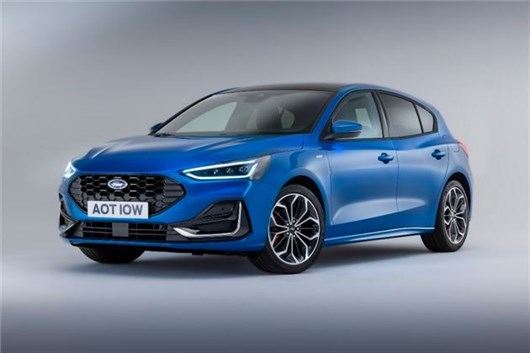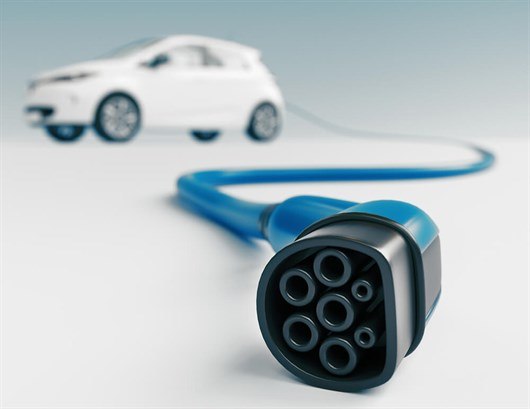Weakest March for new car sales since 1998

- Weakest March since 1998 with new car registrations falling by 14.3 per cent to 243,479 units
- Global semiconductor shortage and cost of living crisis affecting supply and demand
- Best ever month for battery electric vehicles with 78.7 per cent growth to 39,315 units
March 2022 was the weakest March for new car sales in 24 years, with the ongoing global semiconductor shortage and cost of living crisis hitting supply and demand.
Sales fell by 14.3 per cent to 243,479 units, which the Society of Motor Manufacturers and Traders (SMMT) described as "massively disappointing", given that around 20 per cent of total annual registrations are usually recorded in March as buyers demand the latest numberplate.
That means overall registrations for the first quarter of 2022 were down 1.9 per cent on 2021, despite car sales at the start of last year being limited to 'click and collect'.
The SMMT warned that there is further longer-term uncertainty with the invasion of Ukraine raising risk to supply chains.

Ford has already had to temporarily halt production of the 2022 Focus due to supply chain disruption.
More broadly, however, economic headwinds such as rising energy costs, fuel costs, inflation and a squeeze on household incomes could impact new vehicle demand, the SMMT said.
"March is typically the biggest month of the year for the new car market, so this performance is deeply disappointing and lays bare the challenges ahead," Mike Hawes, SMMT chief executive, said.
"While demand remains robust, this decline illustrates the severity of the global semiconductor shortage, as manufacturers strive to deliver the latest, lowest emission vehicles to eagerly awaiting customers."

Record electric vehicle sales
Despite the new car market being down overall it was a record month for sales of battery electric vehicles (BEVs), with 39,315 new zero emission cars leaving dealerships – an increase of 78.7 per cent on 2021.
More BEVs were registered in March 2022 than during the entirety of 2019 and now have a 16.1 per cent market share, while all electrified vehicles account for one in three registrations.
Online used car marketplace heycar also reported a spike in electric car sales leads.
"High prices at the pump are likely to drive people towards the EV market." Chris Evans, heycar
Chris Evans, head of sales at heycar, said: "During March, the number of leads that heycar sent to dealers for new and used EVs was an impressive 141 per cent higher than March last year – a clear indicator of EVs’ increased popularity. In addition to this, hybrids have also seen a 44 per cent uplift.
"Last month saw fuel prices climb to record highs with petrol hitting 167.3p-per-litre on 22 March and diesel reaching 179.9p. Looking at our data, these increased prices are already affecting consumer habits with demand for diesel vehicles dropping by 17 per cent and petrol falling by 11 per cent compared to 2021."
He added: "In spite of the Chancellor’s cut on fuel duty, high prices at the pump are likely to drive people towards the EV market which continues to go from strength to strength. We hope the Government recognises this and looks as favourably as possible on incentivising EV purchases and maintaining the plug-in grant scheme."
How many new cars were sold in March 2022?
There were 243,479 new car sales in March 2022. This was the sector's weakest March since 1998.
How many electric cars were sold in March 2022?
There were 39,315 battery electric vehicles (BEVs) sold in March 2022 - a 78.7 per cent increase on 2021 and the highest volume of BEV registrations ever recorded in a single month.
That means BEVs have a 16.1 per cent market share.
Long wait times on Citroen C5 X - is this normal?

Which small electric car do you recommend?


 Sarah Tooze
Sarah Tooze
 Honest John Awards 2017: Land Rover Discovery Sport named Most Popular SUV for second year in a row
Honest John Awards 2017: Land Rover Discovery Sport named Most Popular SUV for second year in a row
 2022 Smart #1 SUV: price, specs and release date
2022 Smart #1 SUV: price, specs and release date
 2023 Ferrari Purosangue SUV: Prices, specs and release date
2023 Ferrari Purosangue SUV: Prices, specs and release date
 Citroen DS3 Racing revealed
Citroen DS3 Racing revealed
 Infiniti adds diesel to the range
Infiniti adds diesel to the range
 Volvo XC90 chosen as SUV of the year at 2014 Honest John Awards
Volvo XC90 chosen as SUV of the year at 2014 Honest John Awards
 March new car registrations better than expected
March new car registrations better than expected





.jpg)






hissingsid on 6 April 2022
You mention the rising cost of living and the worldwide semiconductor shortage, but there is a third factor making people hesitate about buying a new car. Uncertainty.There is much work to be done on batteries, range and charging infrastructure before many of us will "go electric". One thing I have learned in 55 years car ownership is that it is never a good idea to be among the first to embrace new technology.
The so called 2030 deadline for the production of new petrol and diesel cars to end is not set in stone. It is at the whim of whatever government is in power in 2030.
If the "Partygate" scandal has taught us anything, it is that for those who make the rules there are no rules.
andy dyson on 8 April 2022
I agree. Fools in government (of which there are many) will make foolish decisions.I, for one, will not consider an electric car until the following are satisfied:
1. I can recharge from whatever to 400 miles in les than 5 minutes at a realistic price.
2. That the vehicle has a realistic range of at least 400 miles (that is a compromise as my vehicle, a BMW 330d, will do over 500 miles before needing refuelling).
3. That there is a properly range of recharging stations that can recharge a vehicle to the above specification at a realistic and sensible price.
At present, I feel that the public is doing research into EVs on behalf of the manufacturers at our expense.
Add a comment